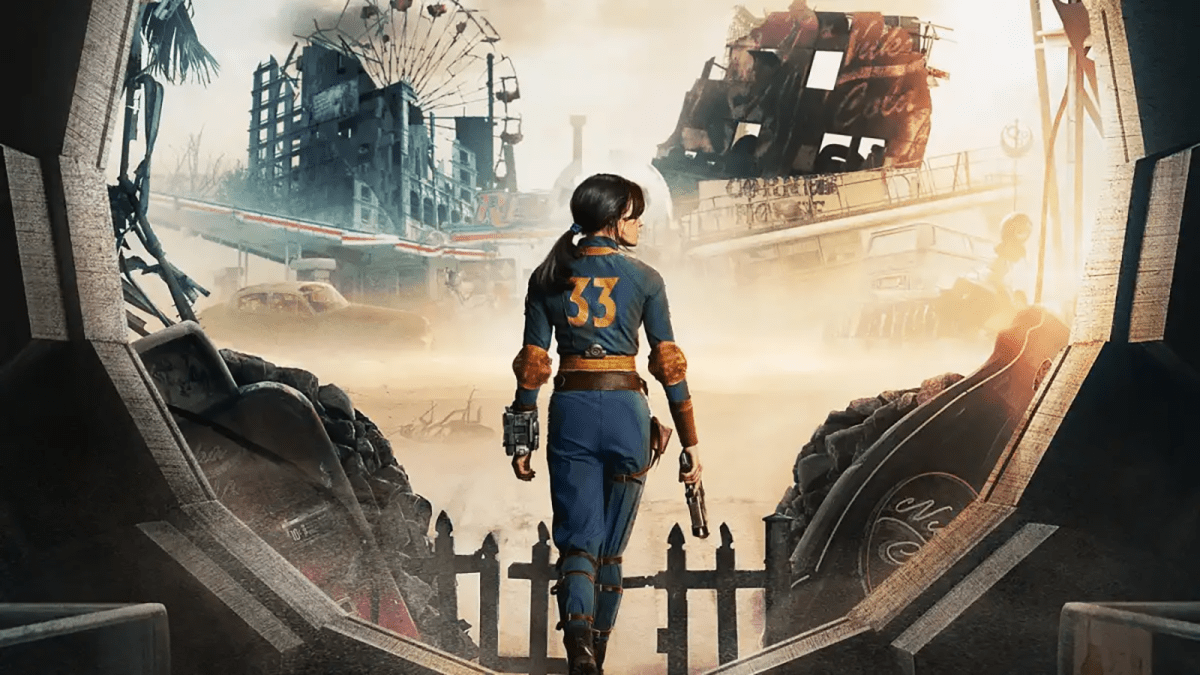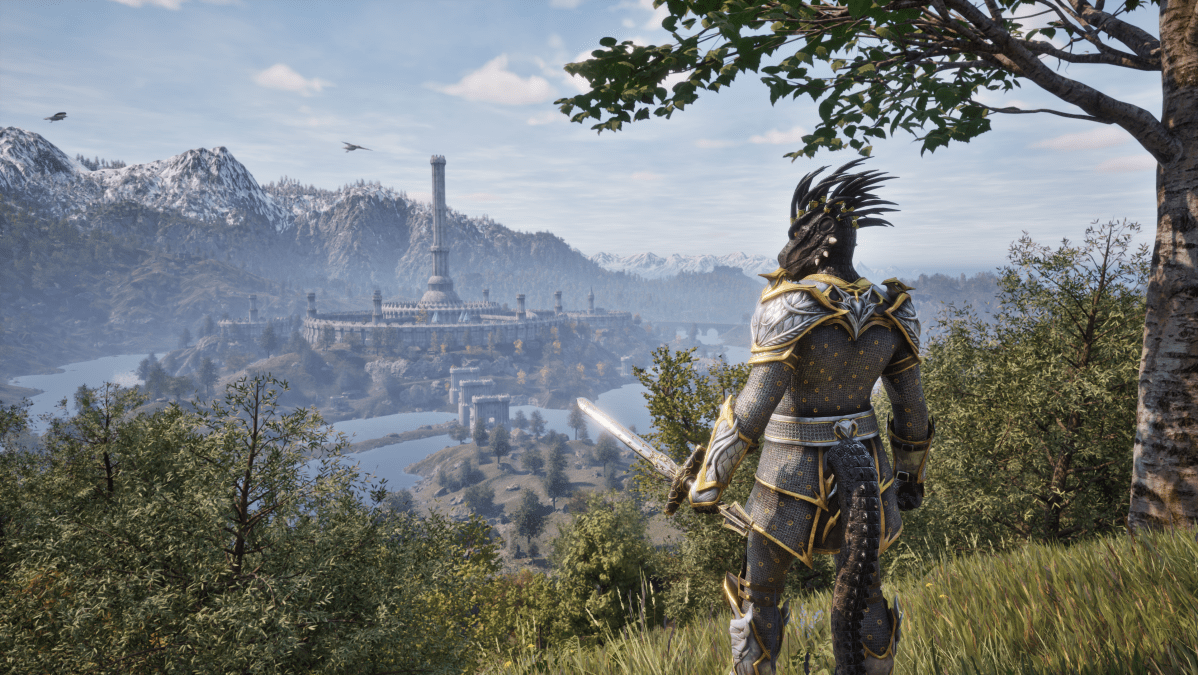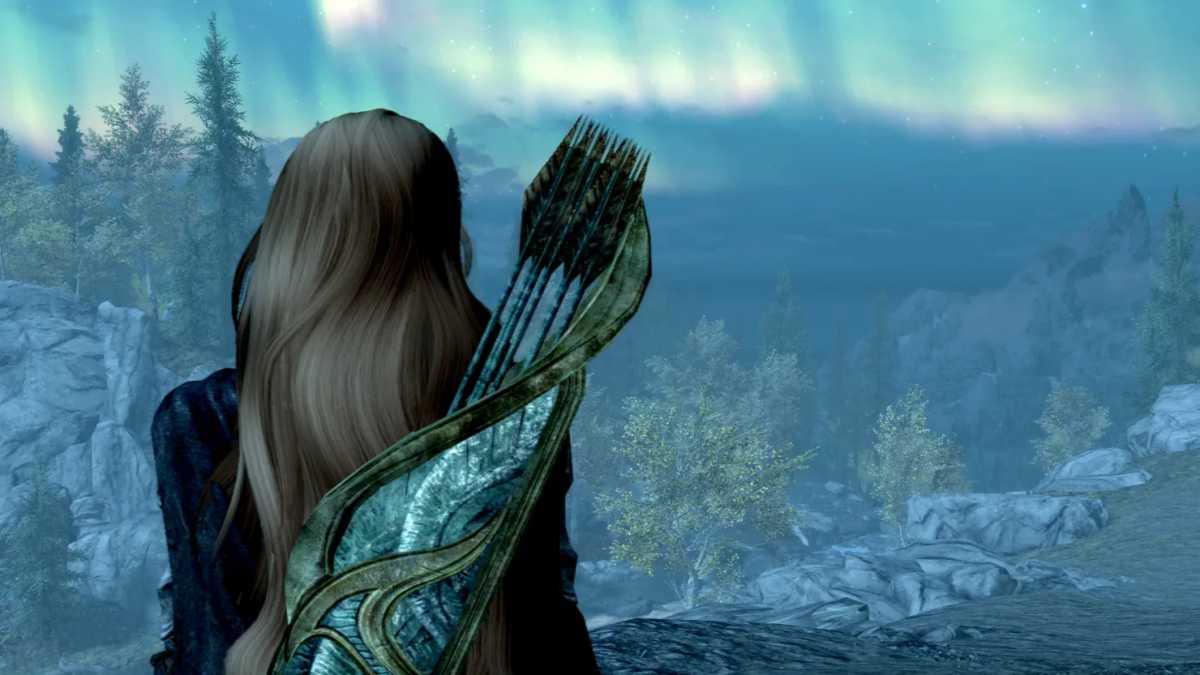We’re now long past the days of video game adaptations being flops that pass us by. HBO’s The Last of Us season 2 is dominating the TV landscape, while Minecraft (love it or hate it) has been a huge family hit at the box office.
Another TV title that struck gold in recent years was Fallout from Amazon’s Prime Video studios, in collaboration with Bethesda. Funny as it was bloody and brutal, this sci-fi show captured just the right balance of references for fans of the post-apocalyptic games, while also creating a fresh story that drew in new audiences.

Amazon
The approach to this vast and sprawling material gives me hope that Bethesda now has the experience to take on another franchise in the zeitgeist right now. I am, of course, talking about the fantasy game series, The Elder Scrolls.
The Elder Scrolls IV: Oblivion: Remastered was announced and released a week ago today. In the first four days, it accumulated a whopping four million downloads and counting – an incredible feat that proves yet again what a dedicated fanbase this universe has.
I was one of those players who tuned into the stream, gasping in awe (while my husband laughed at me) at the visuals of the Imperial City and Emperor Uriel Septim VII, freshly updated for 2025. I also bought the title that same day… though sadly I couldn’t play it that evening as my Xbox Series S took all evening to download the 120GB monster.
But I’ve now clocked up several hours in Oblivion, and it’s brought back some of the sprawling storylines that I know deserve to be enjoyed on the small screen by non-gamers as well. That said, more people have heard of the next game in the series, 2011’s Skyrim (which has been remastered on literally everything, including a bloody fridge), so this could also be a contender for a TV adaptation.
Either way, an Elder Scrolls television series is a no-brainer, and I’ll give you three reasons why.
The vast world of Tamriel
While Prime Video’s Fallout favours steampunk towns in a desolate California landscape, an Elder Scrolls TV series offers something much more fantastical that will appeal to those who enjoy franchises such as The Lord of the Rings and Game of Thrones – with not only landscapes, but multiple races and plenty of lore to explore.
Tamriel is a continent in the Elder Scrolls, and both Oblivion and Skyrim are set in a province in this area.

Bethesda
Oblivion’s province of Cyrodiil, the home of the Imperials, is diverse and lush. With the regal Imperial City centred in the middle, the surrounding smaller cities each have their distinct personalities – from the quaint streets of Chorrol to the seedy alleys of Bravil. Meanwhile, the roads between are filled with wildflowers and colour in abundance, something that would translate beautifully onscreen.
The land of Skyrim, inhabited by the race of the Nords, isn’t quite as appealing in my opinion, but it’s still stunning in its own harsh way. Think rugged mountains, snowy outposts and a sky filled with otherworldly colours thanks to the Northern Lights – and of course, dragons spontaneously flying overhead.
Even if a hypothetical TV series wasn’t a direct adaptation of either Elder Scrolls IV or V, we know there are plenty more lands to explore – the jungles of Elsweyr, home to the cat-like race of Khajiit, or the dunes of Hammerfell, the land of the Redguards. The setting is a writer’s oyster.

Hannah Cowton-Barnes / Foundry
The gripping guilds
Like many Elder Scrolls players, I’m a firm believer that some of the best stories come from side quests and guilds. In fact, I nearly always delay the main quests in both Oblivion and Skyrim because they can’t compare to the entertainment value I get from other missions.
Each game has a standout guild storyline, although both factions appear in most Elder Scrolls titles. For Oblivion, that’s the Dark Brotherhood. Players are inducted into the guild of assassins once they kill another character in cold blood – they then receive a mysterious visitor from the character Lucien Lachance, who invites them to join a “rather unique family”.
Missions for the Brotherhood include staging an accident by causing a minotaur head to fall on a character, and a whodunnit, in which you’re locked in a house with a party of dinner guests and must off them one by one in secret, turning them against each other.
In Skyrim, the Thieves Guild stands out above all, with the Dragonborn recruited by Brynjolf and asked to commit a robbery in broad daylight. If they’re successful, they join the den of robbers and pickpockets – but soon learn that there’s a traitor within their midst that they must uncover.
Both these guilds have characters and plots that would fit perfectly into a TV show – and again, there are many more to adapt, from mages, to warriors, bards and so on and so forth.
The meme-ability
Fallout’s sense of humour made that TV series stand out from the pack, and its tongue-in-cheek style translates over to the Elder Scrolls series, where a show could almost certainly create viral moments to attract new audiences.
Oblivion: Remastered is making many of those moments circulate. One perfect example is the Adoring Fan, an incessant Wood Elf who won’t leave you alone once you become Champion of the Arena. Many players have tried to kill him off in creative ways, but he’s an essential NPC, so he continues to respawn. He’d be a brilliant cameo in an Elder Scrolls show.
There’s also the Daedric Prince of Madness, Sheogorath, a key figure in the Shivering Isles expansion of Oblivion and a side quest in Skyrim. His erratic dialogue is something my school friends and I still quote to this day.
For throwaway one-liners that are easy to drop in, there are the guards that patrol the lands. Most Elder Scrolls fans will know the one in Skyrim who says the phrase: “I used to be an adventurer like you… then I took an arrow to the knee”.
What I’ve listed above is only a fraction of what an Elder Scrolls TV series could feature. In truth, I’m not sure how a showrunner would go about picking a setting, never mind a story to focus on – but the three perspectives in Fallout was a clever way of covering an expansive world, and I have faith that the source material in Oblivion, Skyrim and other titles is strong enough to create an iconic show that will succeed.
Bethesda boss Todd Howard told IGN last year that there were no plans at the time to create an Elder Scrolls show or film – he may be waiting for the right idea or script to come along. And boy, do I hope it does, because it could go down in history.







